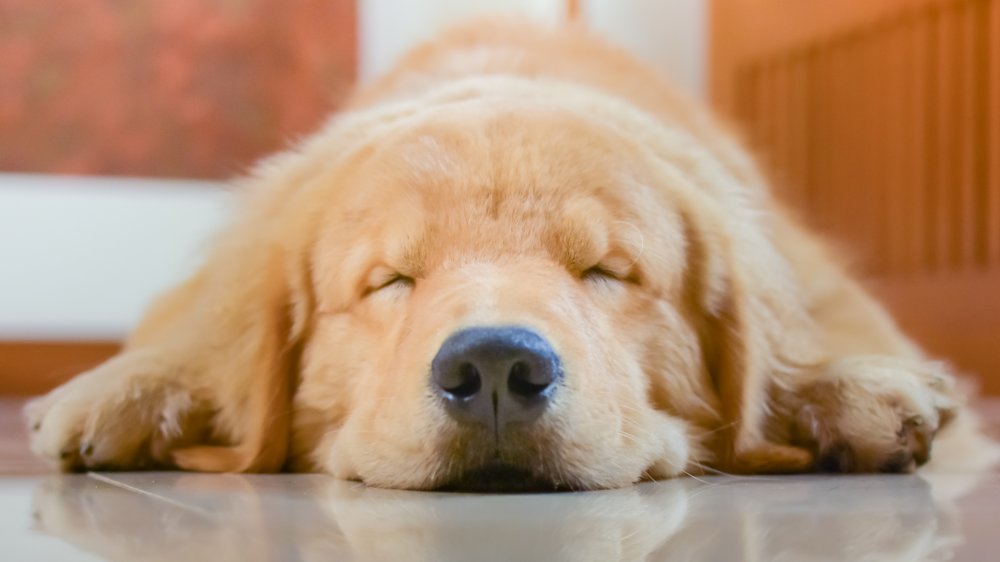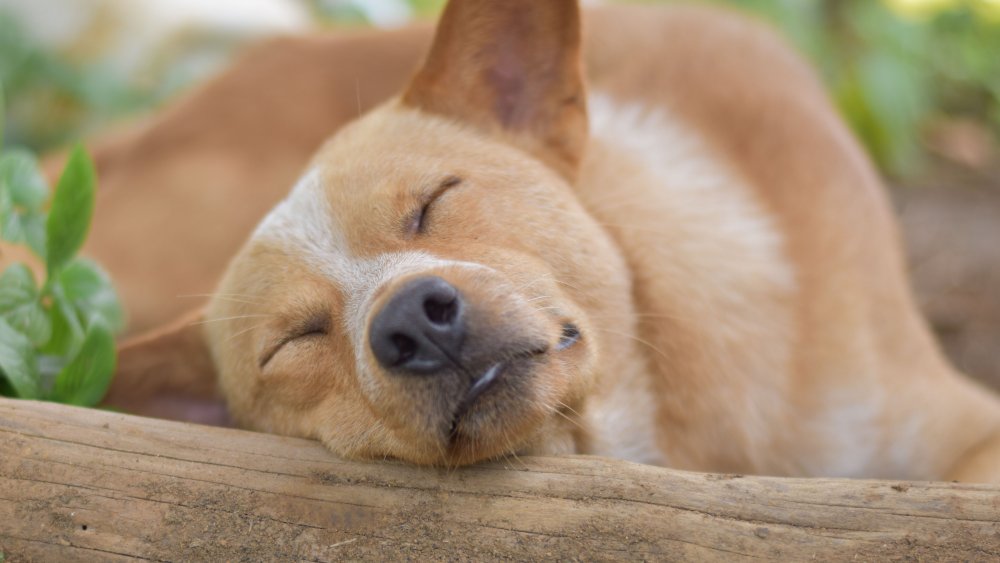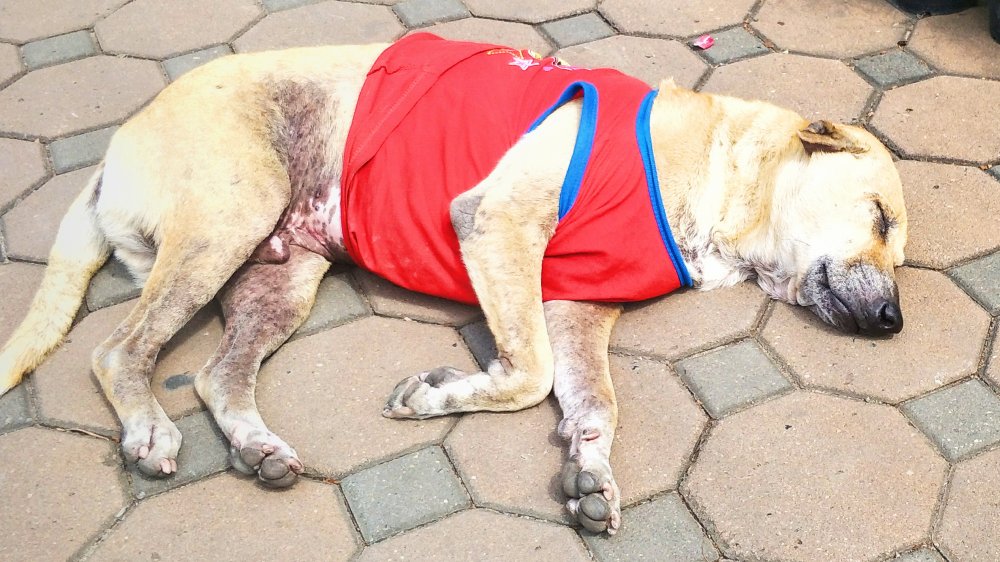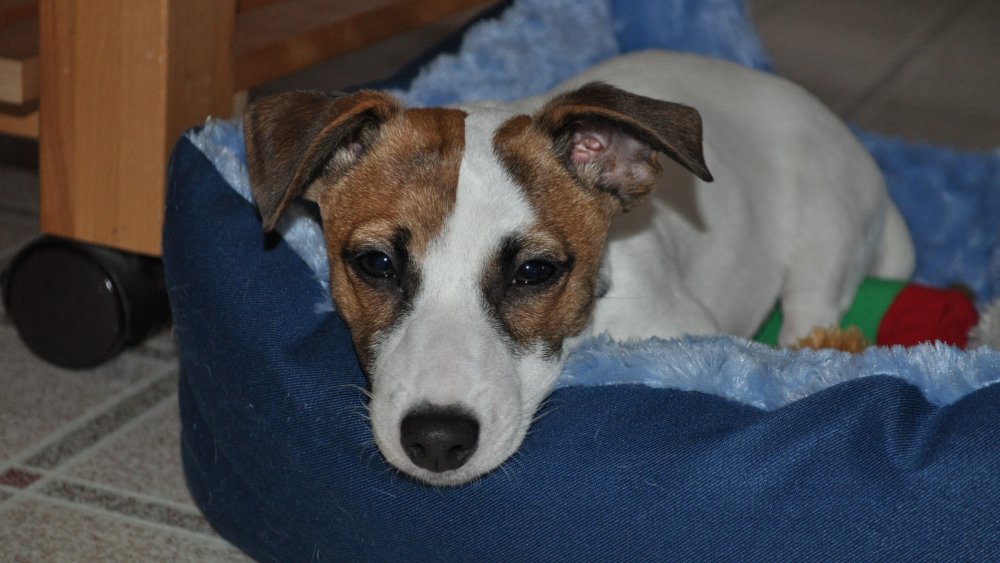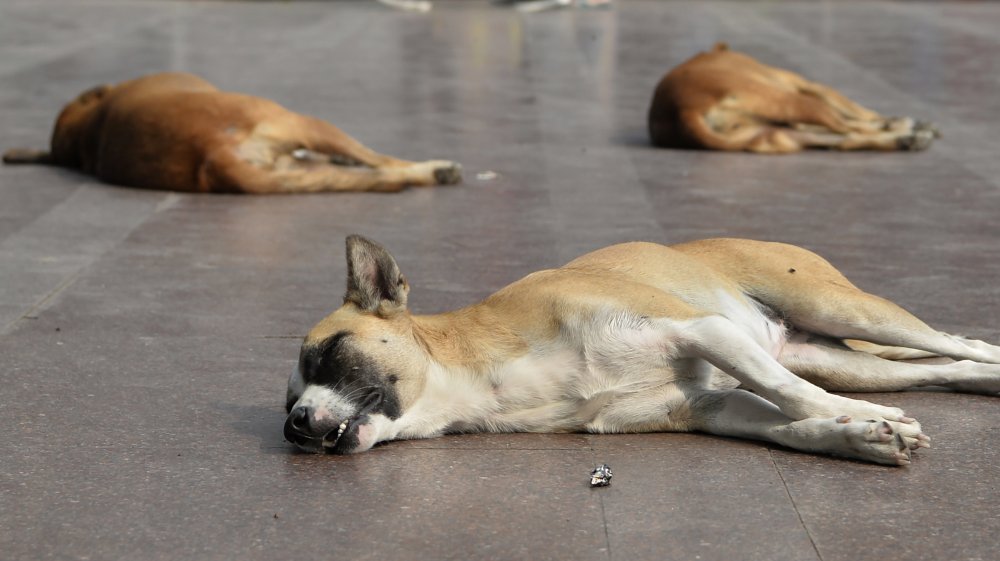The Real Reason Your Dog Is Twitching In Its Sleep
Dogs are a gift that keeps on giving, unless you're allergic or your neighbor isn't very good with collecting the poop, in which case ... well, still a gift that keeps on giving, just not necessarily what you wished for. One of the many peculiar things that delight and occasionally worry dog owners is the odd, yet adorable doggy behavior known as sleep twitching. One moment, your beloved pup is lying fast asleep on the ground. The next, its paws are going wild and its face is twitching like it's chasing something in its sleep.
The thing is, as endearing and YouTube-worthy as such movements are, they're also kind of odd. What exactly makes a dog's body go wild like that when it sleeps? Even if we just shrug and assume it's some strange dog version of sleepwalking, do we even know for sure that dogs actually dream? Hey, looks like we've collectively stumbled onto a mystery! Come, let's take a moment to look at the real reason your dog is twitching in its sleep.
Do dogs dream of electric squirrels?
Let's start our quest by picking the biggest bone in the room right away: Do dogs dream? If not, what is wrong with the world? It would be massively depressing to find out that all that sleep twitching was just some random software malfunction or meaningless spasm. Dogs deserve their dreamland downtime after a hard day of man's-best-friending.
Luckily, American Kennel Club has our back. According to them, dogs quite likely do dream (hooray!). Scientists have actually studied the animal dreaming process on rats, and a 2001 REM sleep measuring experiment discovered that the rodents are capable of dreaming about, uh, the maze they were forced to navigate when they were awake. While that's actually pretty depressing and Kafkaesque, it has also made researchers pretty certain that dogs are fully capable of dreaming. After all, they're more advanced creatures than rats.
It's worth pointing out that while we can never truly know what our canine friends are dreaming of, at least a part of it seems to be about behavior that's characteristic to their breed — pointers have a tendency to sleep-point, and so forth. Delightfully, AKC also notes that researchers believe dogs may very well dream in a very human-like manner, replaying bits and pieces of their day in their sleep.
The anatomy of a sleep twitch
While doggy nap-twitches are likely associated with dreams, there may be more to the behavior than you might initially expect. The sleep twitch phenomenon is officially called "myoclonic twitches," and it tends to be most common in younger and older dogs. One theory posits this is because a puppy is still sort of figuring out how to move, and the myoclonic twitches allow its body to do so while it rests — when an adorable pup twitches in its sleep, it's basically a case of its body stealthily figuring out what the limb in question is for and how it works. When a puppy's brain matures, it develops a system for "paralyzing the large muscles" during sleep, so the dog can't instinctively leap up and start sleep-running after that tennis ball he's dreaming about. But this system is thought to deteriorate over time, which means senior dogs are once again more prone to twitching.
The science of sleep
If we want to get all scientific about dogs and their sleep twitching, PetMD tells us that psychology and neuropsychology expert Dr. Stanley Coren has the goods. According to Dr. Coren, the REM stage of sleep usually switches our large muscles off using an ancient part of the brain known as the pons. It contains two "off switches" that are meant to make sure we don't just act out every single dream we have. If the switches are functioning properly, even the wildest dreams should only cause some enthusiastic eye movements. However, if the switches have developed insufficiently or degraded because of aging, it's twitchy time.
Let sleeping dogs lie
Dog owners should also remember that there are several versions of sleep twitching, and not all of them are pretty. If your dog's sleep movements last longer than 30 seconds and are less "twitchy" and more "violent and rigid," there's a chance that the poor pup might be having a seizure. If this seems to be happening — and even if it didn't and the pup in question was just sleep-twitching normally — it's important to resist the urge to wake the dog. Not only is this unpleasant for the dog, but it may also wake up in a state of disorientation and fear, which could lead into an accidental, instinctive bite. The same applies to if your dog's twitching and whimpering makes it seem like it's having a nightmare. Yes, unfortunately dogs have nightmares, too. Truly, the world is a wicked place.
